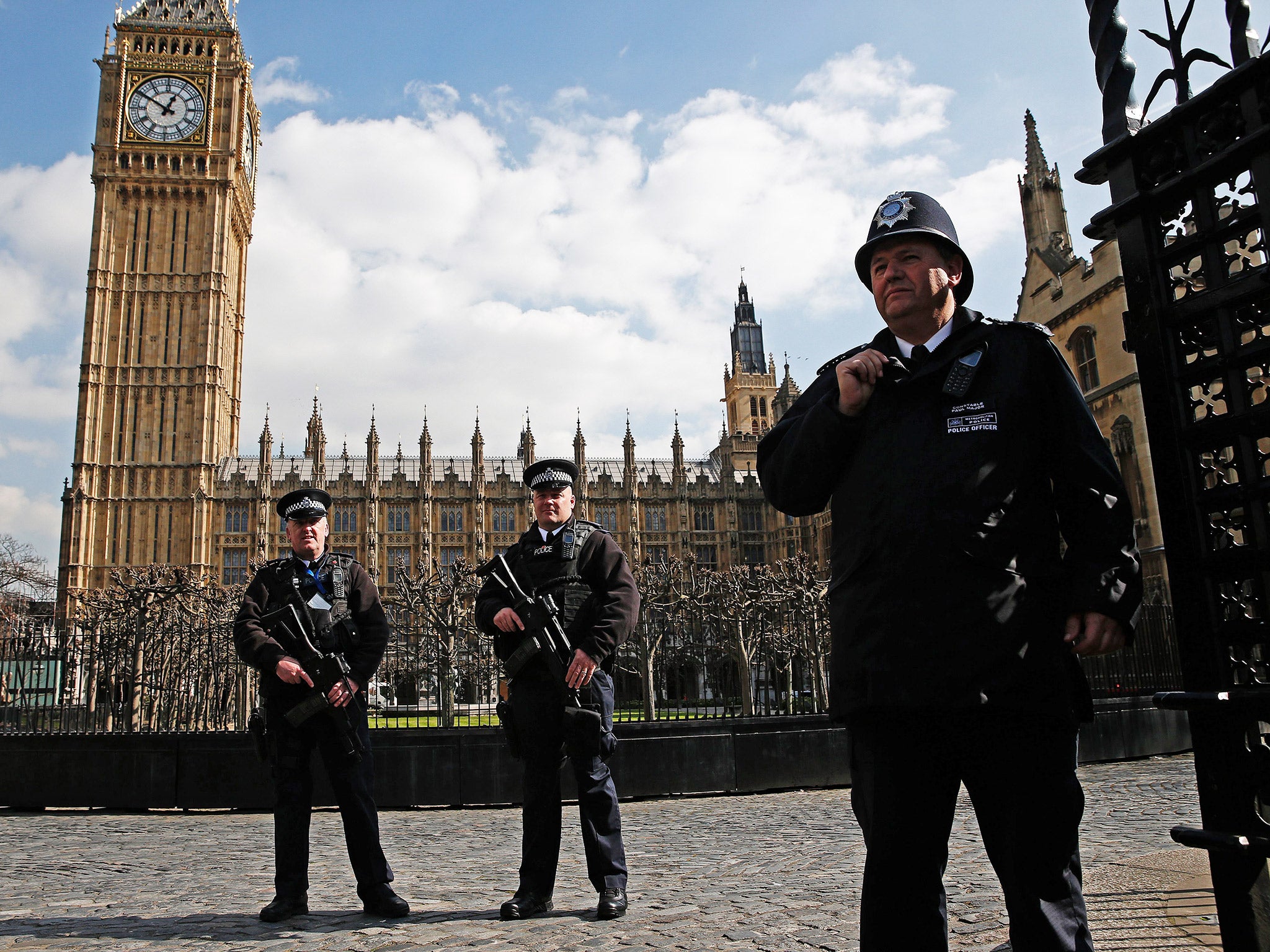Brussels attacks: Would the UK really be safer outside the EU?
Brexit campaigners argue that only outside of the union can we take full control of our borders and prevent potential terrorists slipping into the country

Your support helps us to tell the story
From reproductive rights to climate change to Big Tech, The Independent is on the ground when the story is developing. Whether it's investigating the financials of Elon Musk's pro-Trump PAC or producing our latest documentary, 'The A Word', which shines a light on the American women fighting for reproductive rights, we know how important it is to parse out the facts from the messaging.
At such a critical moment in US history, we need reporters on the ground. Your donation allows us to keep sending journalists to speak to both sides of the story.
The Independent is trusted by Americans across the entire political spectrum. And unlike many other quality news outlets, we choose not to lock Americans out of our reporting and analysis with paywalls. We believe quality journalism should be available to everyone, paid for by those who can afford it.
Your support makes all the difference.Even before the full details of the Brussels terror attacks were known, voices calling for Britain to leave the EU were using the atrocities as ammunition to argue again that we would be safer out.
In the course of the debate, both sides have used the highly emotive question of security to further their view.
Brexit campaigners argue that only outside of the union can we take full control of our borders and prevent potential terrorists slipping into the country. The Government, and others advocating a Remain vote, say that the UK benefits hugely from the cross-border collaboration on policing, intelligence, and justice that the EU facilitates.
The obvious flaw in the argument of those who warn of the dangers posed to UK citizens by freedom of movement within the EU, is that Britain is not part of the Schengen border-free area. We already scan passports at the border, and would continue to do so outside the EU.
There is of course, a debate to be had about the benefits and risks that Schengen area countries are taking, in light of recent attacks in Paris and now Brussels. In January, a report by Europol – the EU’s criminal intelligence body – said Isis recruiters were targeting refugees travelling into the continent from Syria and elsewhere.
But it is hard to see how Brexit would change the way the UK border with the Schengen area operates – unless we were to introduce new visa requirements for EU passport holders, which would have major implications for the jobs market. Dr Hugo Rosemont, of King’s College London’s Centre for Defence Studies, said the UK had negotiated “a favourable position” with Schengen, allowing access to databases without being a member.
The key arguments used by supporters of the UK’s continued EU membership tend to centre on the strength and security Britain derives from collaborating across borders.
Europol works with UK authorities daily. The former Director of Public Prosecutions Keir Starmer, now a Labour MP, has said we rely “very heavily” on the close collaboration being in the EU permits – from sharing intelligence to co-ordinating the timing of anti-terror raids in multiple countries.
In the Coalition years, the Home Secretary, Theresa May, toyed with opting out from much of the EU’s security infrastructure. But the benefits of measures such as the European arrest warrant and more recently the EU’s new structures for combating cyber threats have led to a quiet climb-down. Facing a referendum, the Government now argues strongly for the vital importance of hand-in-glove collaboration within Europe in the fight against terror networks.
Those backing Remain also point to the UK’s lobbying for a rule change that would enable EU states to share air passenger records of all those travelling within the bloc, not just into it.
“There have been concerns raised in the European Parliament but I think the mood may be changing and the UK is playing a leading role,” said Dr Rosemont.
“We benefit from European co-operation through Europol and sharing of best practice, intelligence and information, and also from European arrest warrants.”
Join our commenting forum
Join thought-provoking conversations, follow other Independent readers and see their replies
Comments